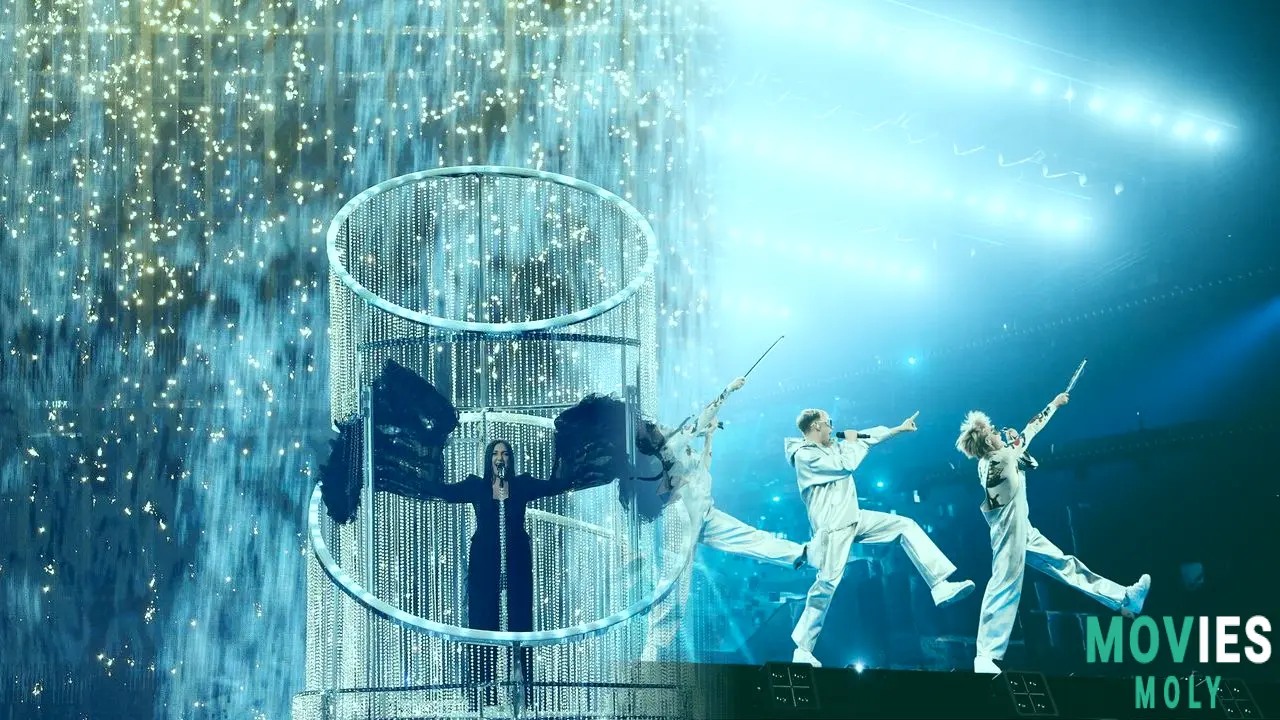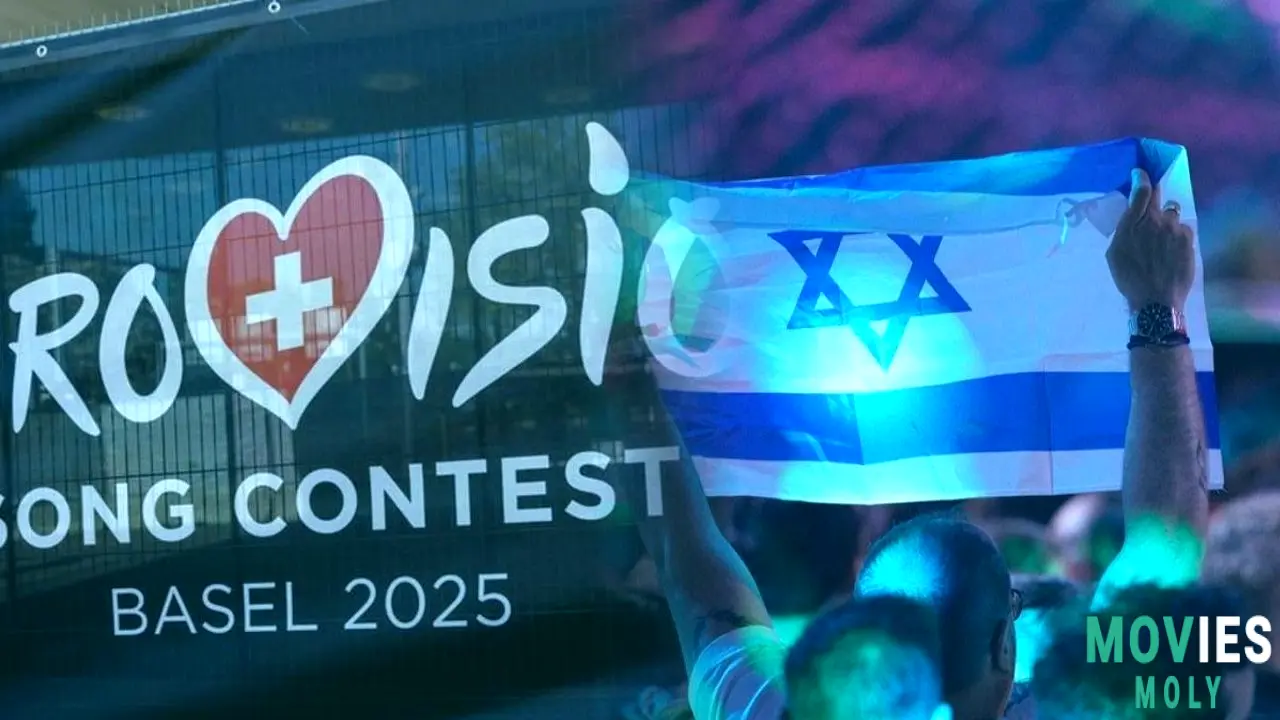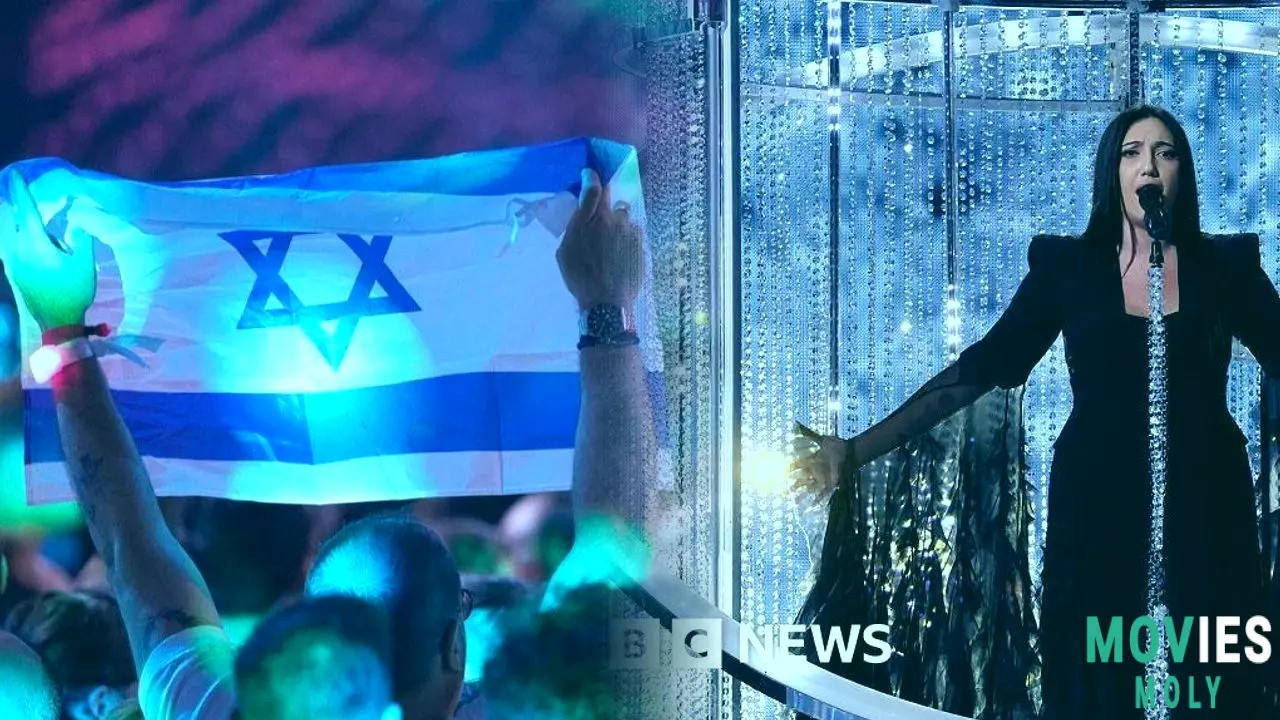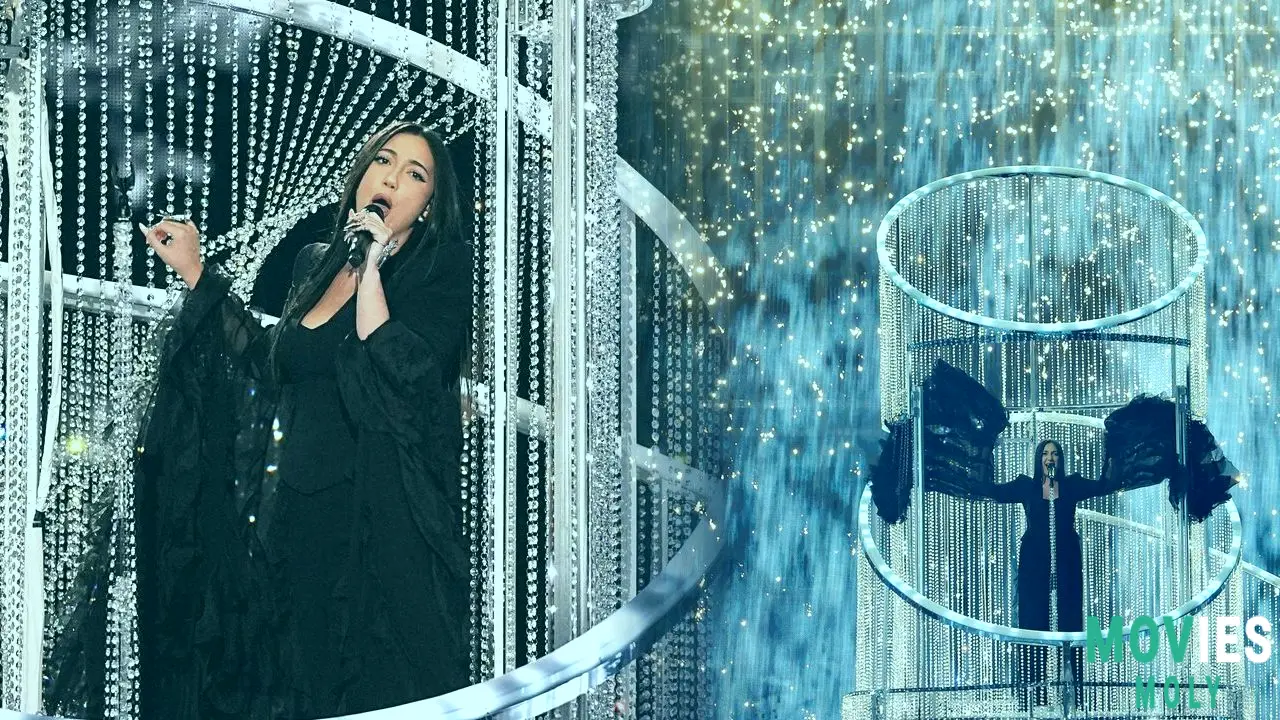Big news for Eurovision fans! The European Broadcasting Union (EBU) just hit pause on a critical vote regarding Israel's spot in the 2026 Song Contest, opting for a face-to-face chat instead as peace efforts unfold in the Middle East.
TL;DR:
- The EBU has postponed its planned November online vote on Israel's participation in Eurovision 2026.
- Instead, an in-person discussion will take place at the EBU's Winter General Assembly in December, influenced by recent Gaza ceasefire developments.
- Several countries have threatened to boycott the contest if Israel competes, while others, including host Austria and Germany, are pushing against politicizing the event.
Alright, Eurovision fanatics, grab your popcorn because the drama surrounding the 2026 contest just took a significant turn! The European Broadcasting Union (EBU), the folks who run our beloved Song Contest, announced a pretty major decision on Monday, October 13, 2025: they're postponing the highly anticipated November online vote on whether Israel will participate in next year's competition. Instead of a virtual ballot, the fate of Israel's involvement will now be openly discussed at an in-person meeting during the EBU's ordinary Winter General Assembly in December.
This move isn't just a simple scheduling change; it’s directly linked to the "recent developments in the Middle East," a clear reference to the Gaza ceasefire. Just last Friday, a ceasefire came into force, followed by the release of all 20 remaining living Israeli hostages by Hamas on Monday, in exchange for Palestinian prisoners. This positive turn of events, brokered by US President Donald Trump, has clearly influenced the EBU's approach, shifting from a potentially divisive vote to a more collaborative discussion.
Why the Sudden Change of Tune for Eurovision?

You might be wondering why the EBU decided to change course at the eleventh hour. Well, the truth is, the question of Israel's participation in Eurovision has been a hot topic for a while now, especially with the ongoing conflict in Gaza. Many member countries and their national broadcasters have been voicing strong opinions, creating a significant rift within the Eurovision family.
The EBU's Executive Board, which met on October 13, stated there was a "clear need to organise an open and in-person discussion among its members on the issue of participation." This suggests that the board realized the complexity of the situation demanded more than just an up-or-down vote. An in-person assembly allows for nuanced conversations, different perspectives to be heard, and hopefully, a path forward that maintains the spirit of unity Eurovision aims for, even amidst political tensions. It's a tricky tightrope walk, as the contest officially strives to be non-political, yet real-world events inevitably spill over into its cultural arena.
The Growing List of Countries Taking a Stand

The controversy isn't new; it’s been brewing for years, leading to widespread protests outside Eurovision venues in Malmö (2024) and Basel (2025). Some nations have been quite vocal about their stance, threatening to pull out of Eurovision 2026 if Israel is allowed to compete. Here's a quick rundown of who's said what:
- Threatening Boycott if Israel Participates: Spain, Ireland, Slovenia, Iceland, and the Netherlands have all publicly stated they would consider boycotting the contest. Icelandic public broadcaster RÚV even conducted a poll showing 58% of Icelanders would only support participation if Israel is excluded.
- Considering Boycott: Belgium, Sweden, and Finland are also reportedly weighing similar actions.
- Against Boycott/Supporting Israel's Inclusion:
- Austria: As the host country for 2026 (after JJ's victory in 2025), Austria's national broadcaster ORF welcomed the EBU's delay, advocating for "a more measured and democratic discussion." Austria's Foreign Minister, Beate Meinl-Reisinger, has previously urged countries not to boycott, arguing that "Eurovision and the arts in general are not the appropriate arenas for sanctions" and that excluding Israel wouldn't help the situation in Gaza.
- Germany: German Chancellor Friedrich Merz has gone a step further, threatening that Germany would boycott Eurovision if Israel is excluded from the competition. This highlights the deep divisions and the EBU's delicate balancing act.
- Denmark: Danish broadcaster DR stated it would not vote against Israel as long as they comply with the rules.
- Norway: NRK has confirmed it has no plans to boycott.
- Sweden: SVT's participation is conditional on "basic conditions being in place," but they don't plan to withdraw if Israel competes.
It's clear that the EBU is caught between a rock and a hard place, trying to uphold its non-political charter while navigating intense geopolitical pressures from its diverse membership.
"In the light of recent developments in the Middle East, the EBU's executive board (meeting on October 13) agreed there was a clear need to organise an open and in-person discussion among its members on the issue of participation in the Eurovision Song Contest 2026."
— European Broadcasting Union (EBU) StatementEurovision 2025: A Glimpse into the Recent Past and Future Hosting Plans

Let's rewind a bit to the most recent contest. The 2025 Eurovision Song Contest, held in Basel, Switzerland, saw Austria's JJ (Johannes Pietsch) snatch the top prize with their song "Wasted Love," a unique blend of techno and operatic vocals. This victory earned Austria the hosting rights for the 70th edition of Eurovision in 2026.
Israel's act in 2025, Yuval Raphael, performed "New Day Will Rise" and impressively secured second place overall, winning the largest combined public vote. Despite the strong performance, Yuval Raphael faced protests during her appearances, including a notable incident in the Grand Final where a crew member was hit by paint as audience members attempted to disrupt the show. Interestingly, even the reigning champion, JJ, has publicly called for Israel's exclusion from next year's competition, underscoring the depth of feeling on this issue.
Looking ahead, Eurovision 2026 is set to light up Vienna, Austria, at the Wiener Stadthalle – a familiar venue from 2015 that can hold up to 16,000 enthusiastic fans. The semi-finals are scheduled for May 12 and 14, leading up to the Grand Final on May 16. The extended deadline for broadcasters to confirm their participation, now until mid-December, clearly gives everyone a bit more breathing room to see how these critical discussions unfold.
What This Means for the Eurovision Song Contest 2026

So, what does this postponement really mean for the biggest music show on Earth? Well, for starters, it signifies that the EBU is acknowledging the highly sensitive and complex nature of the situation. By moving the discussion to an in-person assembly in December, they're hoping to foster a more constructive dialogue among member broadcasters rather than a potentially polarizing vote that could lead to more boycotts.
Some observers, like Eurovisionfun, even interpret the decision to postpone the vote and hold a discussion as effectively ensuring Israel's participation, barring any major surprises. The EBU has consistently maintained that Eurovision is a "non-political cultural event" and that Israel's national broadcaster, KAN, meets all membership criteria. This official stance suggests a preference for continuity and inclusivity, but the intense pressure from various countries cannot be ignored.
The December meeting will be a crucial moment, as it will reveal whether the EBU can successfully navigate these turbulent waters and keep the focus on music and unity. Fans across Europe and beyond will be watching closely to see if their favorite contest can find a way to move forward without further division, continuing its legacy as a celebration of diverse cultures and incredible musical talent.
FAQ: Your Eurovision Israel Questions Answered


- Reuters (10:05 PM - October 13 2025 IDT)
- BBC News (Published 14 hours ago - implying Oct 14, 2025)
- The Independent (Published Oct 13, 2025)
- Eurovoix (Published Oct 13, 2025, by Anthony Granger)
- That Eurovision Site (Published Oct 11, 2025, by Silvia Stifini)
- Eurovisionfun (Published Oct 13, 2025, by Giannis Argyriou)
- HuffPost UK (Published Oct 13, 2025)
- CNA (Published 14 Oct 2025 02:54AM)
- Euronews (Updated: 06/10/2025 - 13:31 GMT+2)
- GB News (Published: 13/10/2025 - 21:13 by Ed Griffiths)






